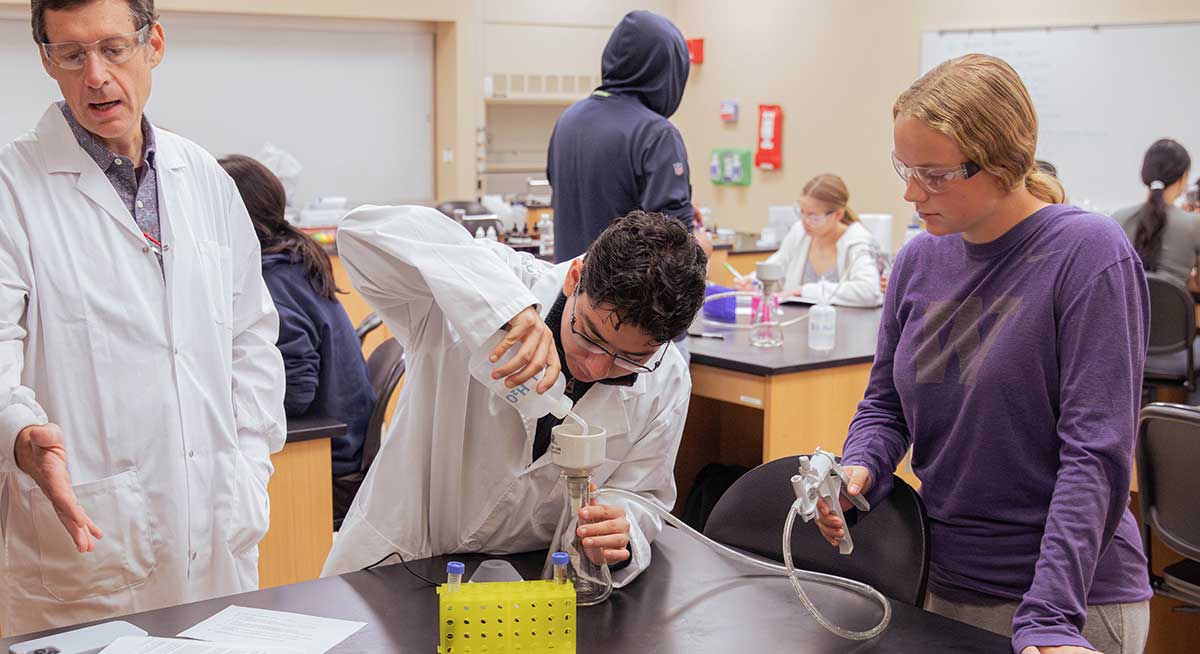Yakima Valley College has received a $1 million grant from the National Science Foundation (NSF) to support STEM (science, technology, engineering, and mathematics) students from low-income backgrounds. The grant will be used to provide scholarships, academic support and research opportunities to at least 60 students over the next six years.
The grant will be used to fund the college’s New Scientist Training-2 (NeST-2) program. NeST-2 is a comprehensive program that provides students with the academic support and research opportunities they need to succeed in STEM fields. In addition to scholarships, NeST-2 students receive one-on-one advising, take part in hands-on research, and participate in cohort-building enrichment activities.
YVC Biology Instructor Matthew Loeser, the principal investigator for the grant, said the funding is a significant opportunity to help individuals historically underrepresented in STEM fields enter careers that are in high demand.
“We need fresh, new minds from our Valley to tackle the wickedly complex problems of our world,” Loeser said. “So this project improves the education of future STEM workers and increases support for low-income students.”
The NeST-2 program is an expansion of YVC’s original NeST program, which was established in 2016 with a $448,000 grant. The original NeST program provided scholarships, mentorship, and hands-on research opportunities to 52 low-income and first-generation students.
“With this grant, we can build on YVC’s success in supporting students from low-income backgrounds or who are the first in their family to attend college as they pursue their desire to enter a STEM profession,” said YVC STEM Director Cristy Rasmussen.
Since 2012, more than 250 YVC students have participated in summer research opportunities through YVC. In addition, YVC has funded staff positions to support STEM students’ academic success and grown participation in the Mathematics, Engineering, Science Achievement (MESA) Community College Program, which works to increase the number of community college students who successfully transfer to four-year institutions and earn bachelor’s degrees in STEM majors.
“Through these efforts, we have seen benefits such as improved student engagement and learning, more equitable access to research experiences, and improved retention and completion — especially for underrepresented students,” Loeser said.
Loeser said the NeST-2 program will identify strategies that offer a high return on investment by studying the effectiveness of academic and career support.
“Community colleges like Yakima Valley College have a crucial role to play in preparing students for a future in STEM,” Loeser said. “Establishing evidence-based best practices can spur replication of similar programs across the community college system of Washington state and the country.”
Further Reading
